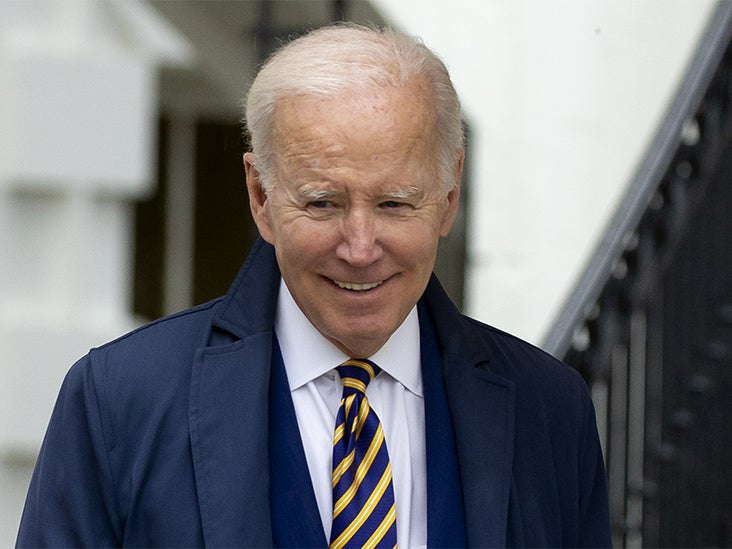- February 2, 2023
- No Comment
- 10 minutes read
COVID-19: Biden Administration to End Public Health Emergency in … – Healthline

The Biden administration has announced that it will end the COVID-19 pandemic state of emergency on May 11.
The state of emergency was started under the Trump administration in March 2020. The declaration of an emergency opens up a host of expansive options to combat the outbreak, including expanding access to healthcare, COVID-19 tests and vaccines.
Public healthcare experts who spoke to Healthlinefor this story have concerns about the pace of this change and how ending the state of emergency could affect the US healthcare system moving forward.
Dr. William Schaffner, an infectious disease expert at Vanderbilt University School of Medicine thinks that any stoppage of the state of emergency at this stage is a bit like looking at the future of public health through rose-colored glasses.
“The first thing I thought is that it’s optimistic and a bit bold,” he says, “After all, we in public health, and preventive medicine, and infectious diseases have such a respect for this changeable COVID virus that we take it week by week. And here we have this prediction, in effect, of what things will be like three and a half months from now.”
Schaffner is concerned that the elimination of the state of emergency will worsen the impacts already seen on public health budgets as COVID-19 has been seen, in much of the public’s view, as less of a concern.
In their release, the Biden administration was quick to point to what they call the “wide-ranging chaos and uncertainty throughout the health care system” that they feel would ensue, especially within Medicaid programs, if the declaration was to end earlier than May.
Those who work in the medical technology space, like Dr. Art Papier, associate professor in Dermatology and Medical Informatics at the University of Rochester and CEO and co-founder of VisualDx, are also cautious. While Papier does view COVID-19 as reaching endemic levels, he says that it’s important to keep in mind that the vast majority of Americans support measures like the state of emergency.
“The national order is actually something that people like. The politicians are making a big deal about it when it actually leveled the playing field, so everybody could get free tests mailed to them, they could get vaccinated without cost whether they had insurance or not.”
Papier, whose company works with the Department of Health and Human Services on initiatives related to infectious disease, says that the US must be better at planning for the next public health emergency— whether it’s COVID-19 related or not— rather than sinking into its usual pattern.
“We tend to go from crisis to crisis in this country, we get ramped up and then people move on to the back to business [approach] and they don’t think about the preparation for other health events.”
A December, 2022, IPSOS poll found that the majority of Americans they surveyed believe that the federal government should continue to fund preventative measures related to COVID-19.
A majority also supported local and federal officials lifting all COVID-19 restrictions.
Schaffner says that he believes the choice to end the state of emergency reflects the attitudes of much of the public who have shifted away from certain preventative measures.
“Predictions are hazardous. And personally, I’m a little bit more conservative. But nonetheless, it is a reflection, in part, of where the country already is going, right? The country has taken off its masks, it’s traveling, going to religious services, concerts, athletic events, joining together, having family reunions, and they are eager to get back to a more normal circumstance.”
Papier says that the goal should be to further inform the public about the risks as we see further variants of the condition come to the surface.
“I would just say that we need to do massive education in this country about science and medicine so that the public understands what’s safe, what’s not safe, what trade-offs are, what risks are, in terms of health.”
For Schaffner, the future involves high levels of support, even as the country loses the state of emergency as a key tool to obtain those resources.
“I think, in order to keep our population protection high, we need to keep our guard up. We’ll have to keep vaccinating, we’ll have to keep testing, we’ll have to keep caring for people who get sick enough to be hospitalized. So we need to go forward, not in a carefree fashion, but in a careful fashion, and being careful requires support. You can’t do it on the basis of wishful thinking.”
Our experts continually monitor the health and wellness space, and we update our articles when new information becomes available.
Current Version
Feb 1, 2023
Written By
John Loeppky
Edited By
Gillian Mohney
Fact Checked By
Sheeka Sanahori
Share this article
OUR BRANDS

